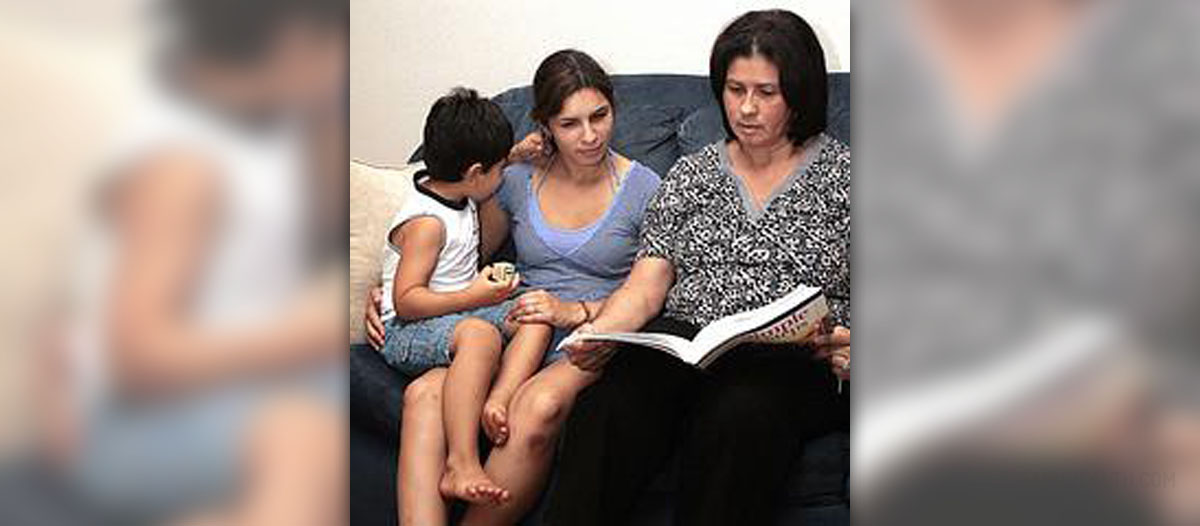
Caregivers are known to be selfless, kind people who desire nothing more than for the other person to stay healthy and well. Many times this takes a great toll on the health of the caregivers themselves, causing their health to deteriorate quickly.
Being a caregiver is a very hard task. In fact, people who go through the process of taking care of their disabled or sick spouses have up to 63% greater chances of dying between their 66th and 96th year of life, than other people of the same age. This job is a heavy burden of fear of loss, mental and physical stress and incredibly physical demanding. Therefore, not many people can manage to be and stay caregivers for a longer period of time, especially if they are older themselves.
Facts about Family Caregivers
Many caregivers neglect their health, when they should do the exact opposite. Therefore, caregivers are usually suffering from sleep deprivation, poor nutrition, lack of exercising and absence of proper and regular medical check-ups. Additionally, due to depression and negativity that often go hand-in-hand with being a caregiver, many individuals end up overindulging in alcohol, tobacco or drugs. Nevertheless, being a caregiver can also prove to be fulfilling and rewarding, making people feel dedicated, kind and committed. Yet, studies have shown that this is not so in the majority of cases, since up to 59% of caregivers are clinically depressed.
The National Alliance for Caregiving and AARP carried out a research which concluded that about 44.4 million Americans who are older than 18 are dedicated to providing care to an adult, usually a family member, without earning any money from it.
If we were to imagine a typical caregiver, it would be a female person who is about 46 years old, spending about 20 hours a week taking care of her sick mother or another female relative, who lives nearby.
On average, caregiving lasts for 4.3 years. Moreover, a majority of caregivers are performing multiple roles, being mothers, wives or workers at the same time. Speaking of work and caregiving, in about 60% of cases, caregivers have additional jobs while taking care of an elder person at the same time. Furthermore, in 62% of cases, caregivers need to jeopardize their careers due to their obligations, calling in sick or being late to work often. However, male caregivers are likely to work full-time than their female counterparts.
Caregivers provide care for their relatives who are older than 50 in about 80% of cases. These people usually suffer from diabetes, cancer and heart disease, being incapable of taking care of themselves. However, this is not always the case, since about 25% of people who need a caretaker suffer from Alzheimer's, dementia or other mental illnesses.
As for the most common problems caregivers face, these include lack of time for themselves, emotional and physical stress and balancing work and families.
Managing Life as a Caregiver
First and foremost, you need to know how to take good care of yourself. Many caregivers neglect their own health due to their dedication to helping the other person. This can have a catastrophic impact on their well-being, leading to health deterioration and possibly death.
Thus, attitude is everything and the negativity overwhelming caregivers usually takes its toll on their health. So, organizing your life better and changing your perception is crucial. If you believe that you can work everything out, you will probably be able to combine your free time, your work and your obligation as a caregiver.
Reduce your personal stress, and rest assured that it will come. Being a caregiver is an incredibly stressful job and you have to bear this in mind, being prepared for all that might strike you, both physically and mentally.
Sometimes, caregivers decide to do what they do since they believe that this will mend their relationship with the other person. However, this too can lead to disappointments and discouragement, especially if the other person is mentally ill in any way.
Therefore, in order to perform your caregiving duties and live a healthy, positive live at the same time, you need to have several things in mind. Initially, take breaks from caregiving often. Secondly, do not be afraid to seek help, especially when it comes to tasks such as preparing meals. Finally, start feeling more healthy and pay attention to your overall well-being.
Keep an open, positive mind and, once you have listed all the aspects of caregiving bothering you, do your best to find effective solutions. Communicate openly with others and help others help you.
Be in contact with your physician and do not be afraid to seek advice and undergo regular checkups. Your health and the health of the person you are taking care of both needs to be taken into consideration.
Finally, start exercising regularly, do not neglect your personal life and never suppress your feelings and keep the frustrations locked inside. Remember, you are a caregiver, but you are a person who has feelings, emotions and needs as well.
All in all, caregiving is a hard, but a rewarding job. However, in order to be a caregiver and live a long and happy life, you need to keep your health in mind and satisfy all your needs as well, balancing your personal desires and goals with the needs of the person you are taking care of.

















Your thoughts on this
Loading...